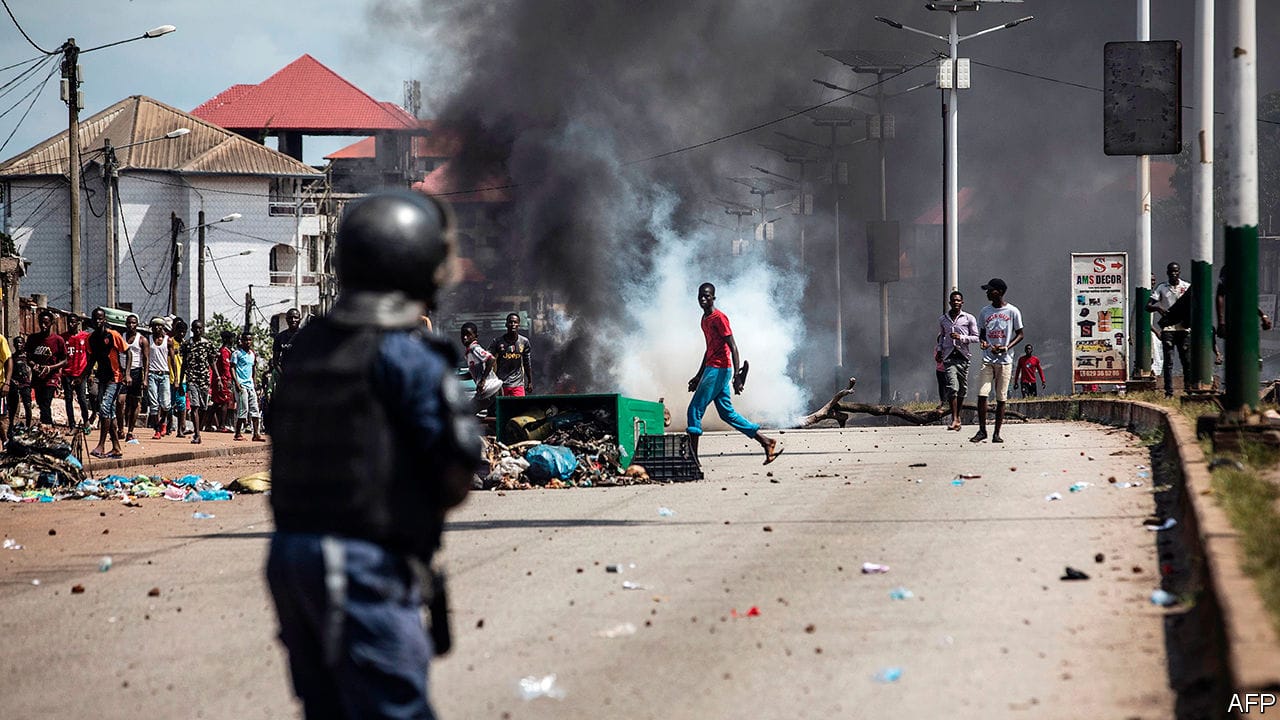- by MAJDAL SHAMS
- 07 28, 2024
-

-
-
Loading

Loading


“LONG LIVE democracy, long live peace,” said Kabinet Cissé, the head of Guinea’s electoral commission, as he announced on October 24th that Alpha Condé had won a third term as president. But on the streets of Conakry, the capital, there was little sign of peace—perhaps owing to a lack of democracy. Wounded protesters lay next to charred vehicles. A fleet of police trucks surrounded the house of Mr Condé’s rival, Cellou Dalein Diallo, who was trapped inside for over a week after the vote on October 18th.This is a crisis many saw coming. In March the 82-year-old Mr Condé, who has ruled for almost a decade, pushed through a new constitution that allowed him to run for two more six-year terms. Dozens of people were killed by security forces during protests about a referendum on the changes. Guineans harbour other grievances, too. Most of the country’s 13m people are poor, despite the presence there of the world’s largest reserves of bauxite, from which aluminium is refined.